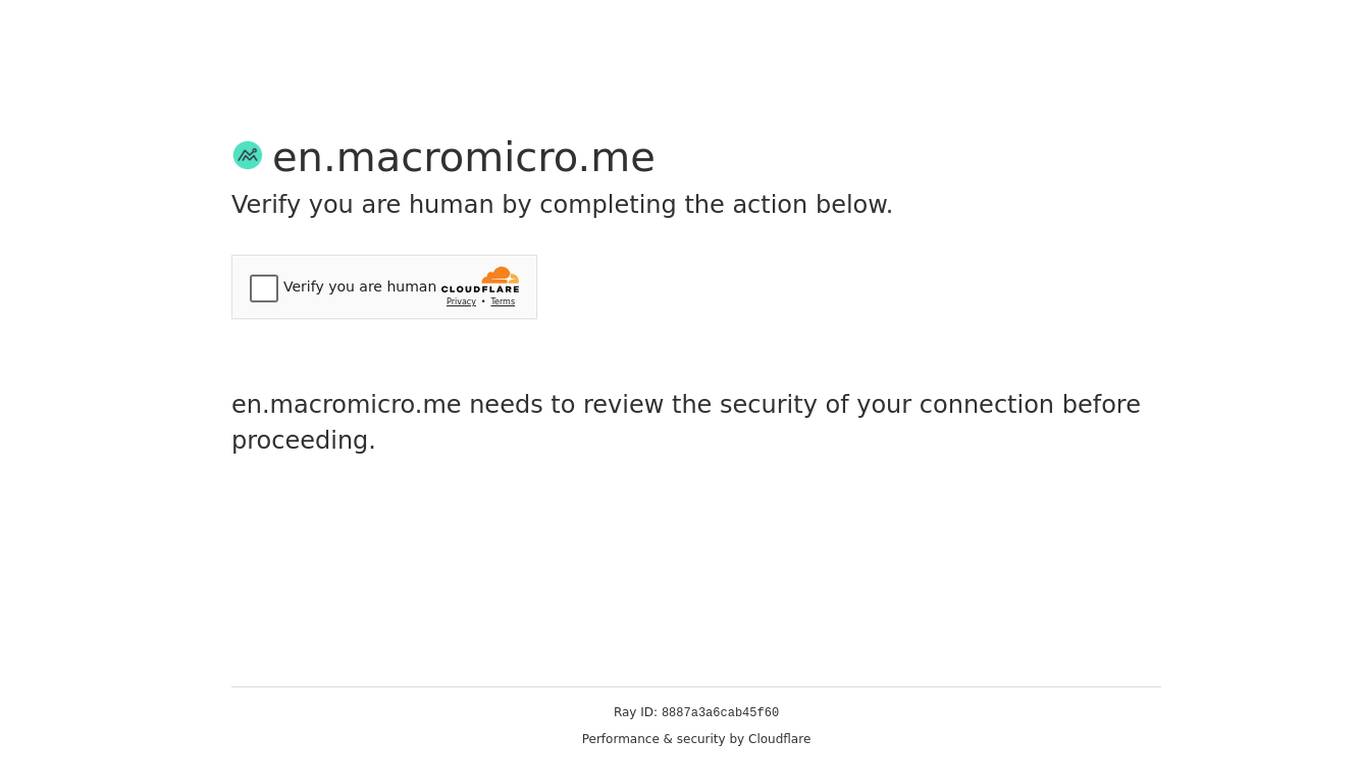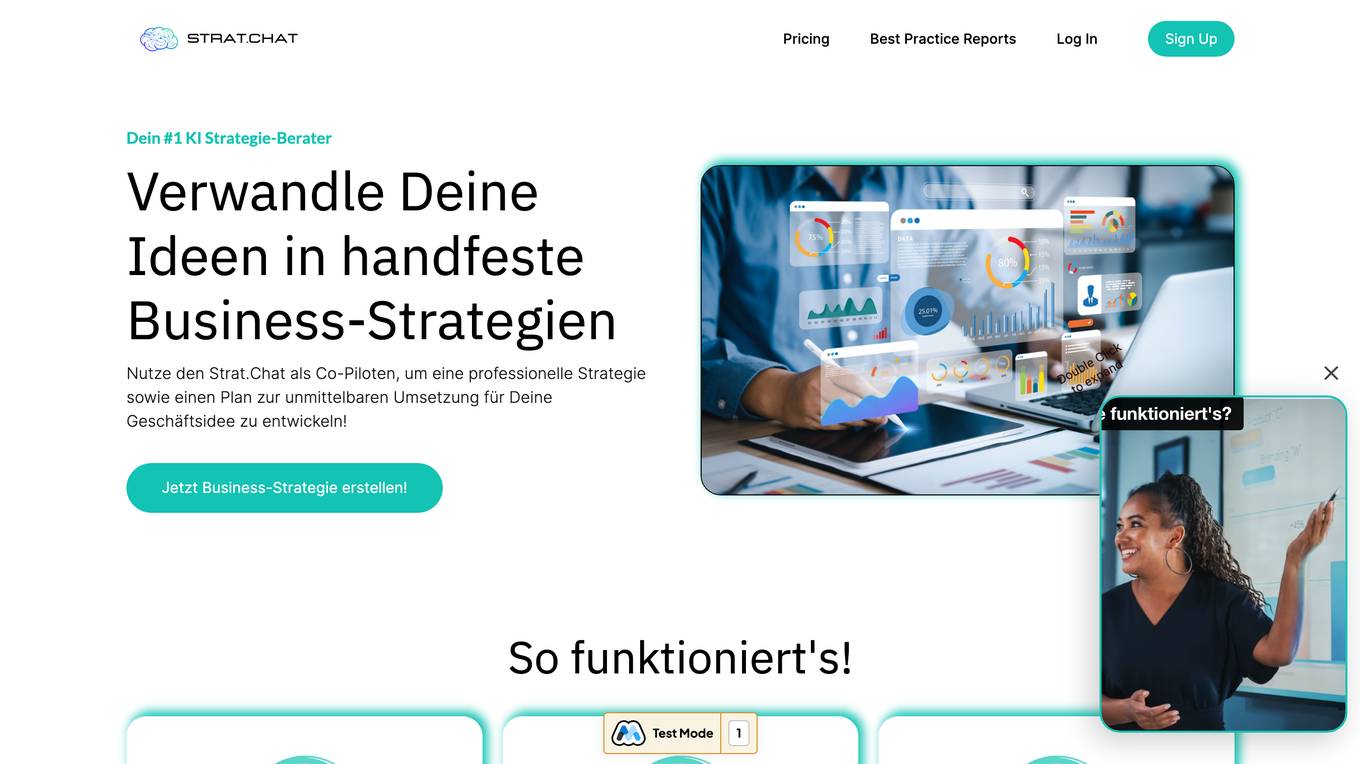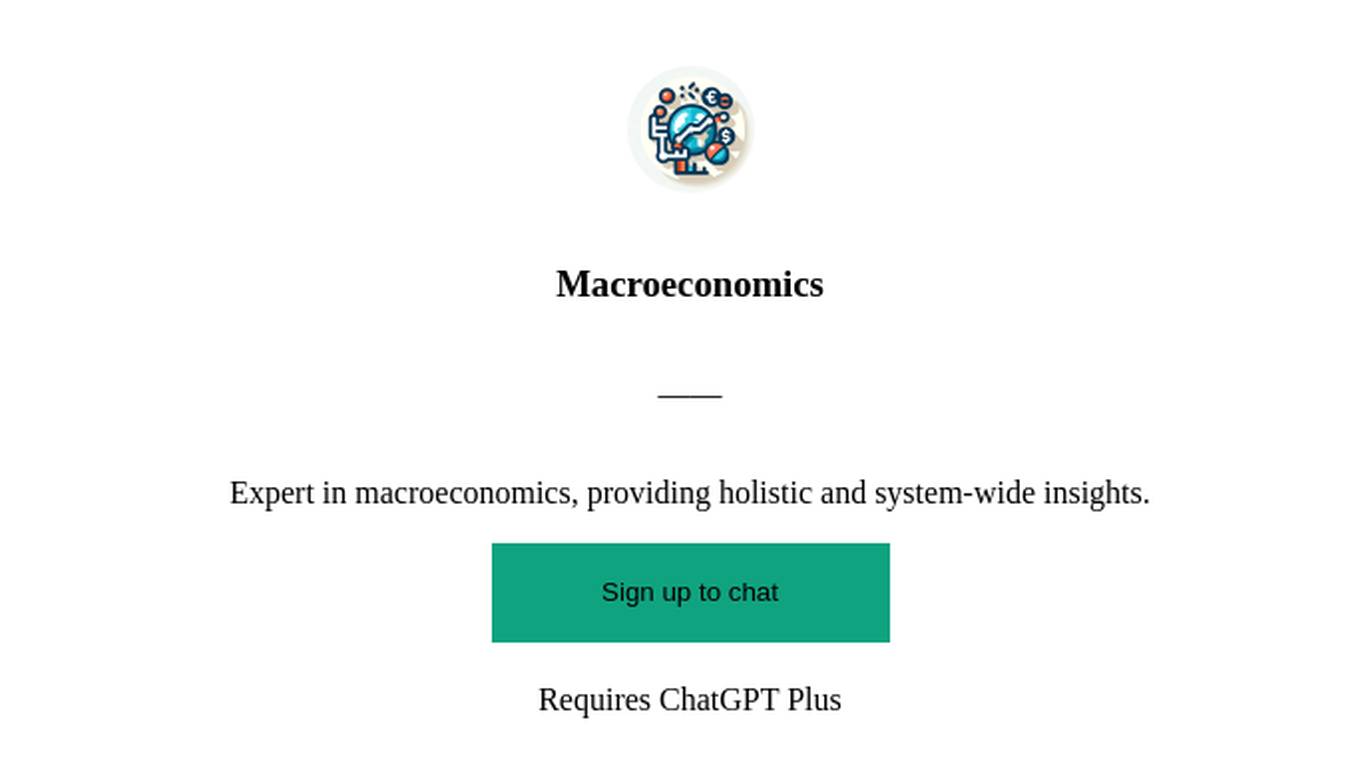Best AI tools for< Macroeconomist >
Infographic
2 - AI tool Sites

MacroMicro
MacroMicro is an AI analytics platform that combines technology and research expertise to empower users with valuable insights into global market trends. With over 0k registered users and 0M+ monthly website traffic, MacroMicro offers real-time charts, cycle analysis, and data-driven insights to optimize investment strategies. The platform compiles the MM Global Recession Probability, utilizes OpenAI's Embedding technology, and provides exclusive reports and analysis on key market events. Users can access dynamic and automatically-updated charts, a powerful toolbox for analysis, and engage with a vibrant community of macroeconomic professionals.

Strat.Chat
Strat.Chat is an AI-based business strategy tool that assists business owners, potential founders, and entrepreneurs in evaluating business ideas, developing implementation plans, and providing comprehensive market data. Users can describe their business idea or existing model, and the tool uses artificial intelligence to analyze it in five steps: idea assessment, industry structure analysis, macroeconomic perspective, implementation plan, and market data. The tool offers customizable recommendations and the option for a 'Deep Dive' to delve into more detailed insights.

